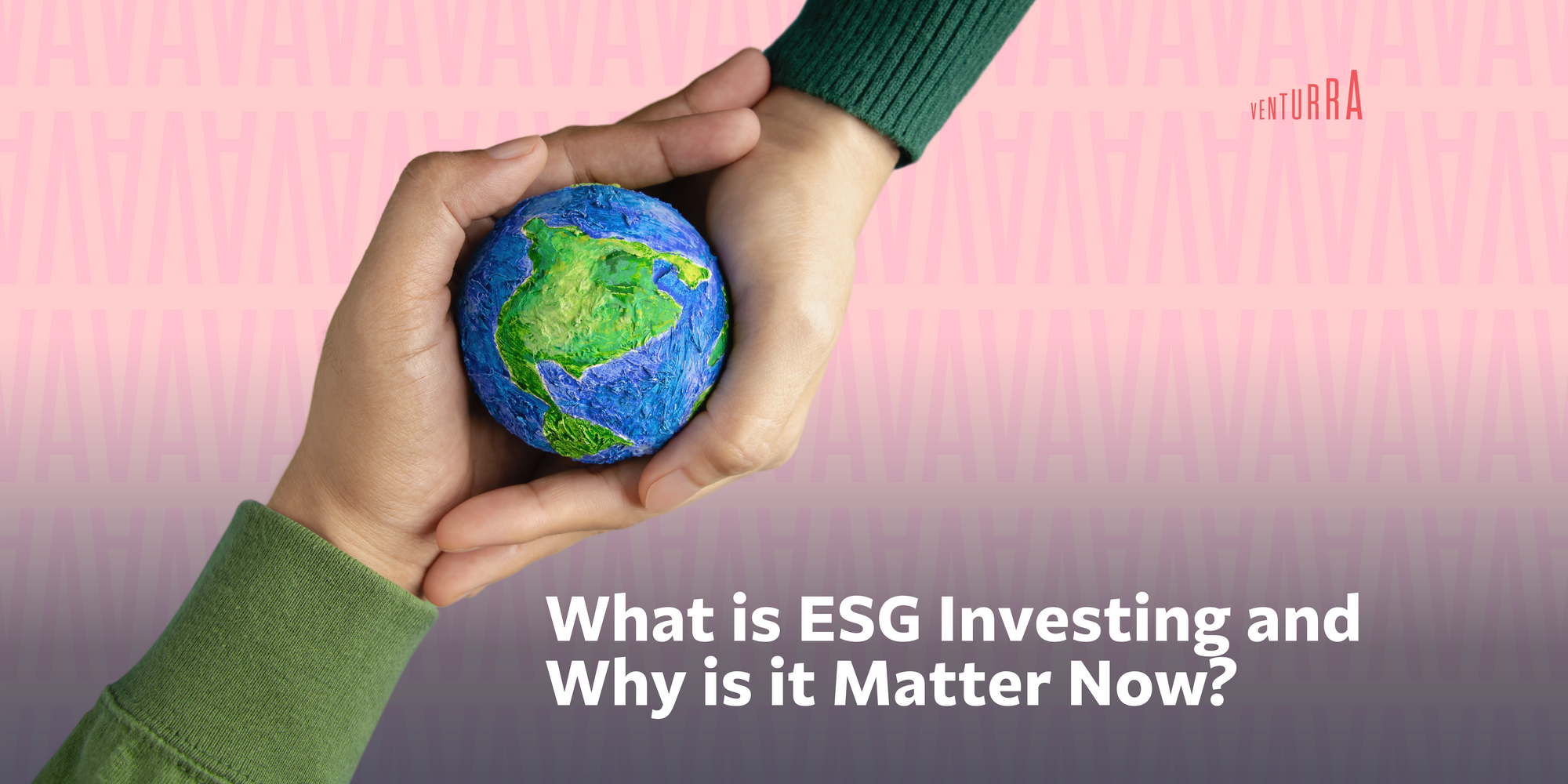What is ESG Investing and Why is it Matter Now?

ESG is increasingly being used to assess the alignment of a company's strategies and objectives with initiatives to promote an orderly low-carbon transition. As an increasing number of institutional investors and funds adopt diverse ESG approaches, questions arise.
What is ESG?
ESG stands for Environmental, Social, and Governance. It’s a way to measure how companies do business. ESG investing is a strategy for investing in companies with solid ESG practices. This strategy has been around since the 1990s but has recently gained more popularity because it can help you invest in companies that are well-managed while also helping the world become sustainable.
(ESG) are increasingly considered indicators of an organization's sustainability and resilience. The criteria are gradually being applied to define strategic goals, operational execution, and reporting sustainable business practices to key stakeholders/customers.
Why does ESG matter?
ESG is not just about the environment, but also about the economy and society. It’s a long-term investment approach that can help companies become more profitable, attract and retain customers, and protect their employees.
Companies adopting ESG principles gain stronger financial growth and efficiency, lower volatility, more staff productivity, fewer regulatory and legal interventions (fines and punishments), top-line growth, and cost savings. Companies that performed poorly on ESG, on the other hand, had increased capital costs and volatility as a result of disputes and other incidents like labor strikes, fraud accounting, and other governance issues.
How does ESG help in achieving UN SDGs?
ESG is not a panacea for all social and environmental problems, but it can help you achieve your goals. If you have an end goal in mind, ESG can help you get there by aligning your investments to support that outcome. For example, if your goal is to reduce CO2 emissions as part of the Paris Agreement then ESG factors such as carbon intensity and energy efficiency might be important considerations when selecting companies to invest in or divest from.
ESG is also useful because it allows investors to measure how they are doing on their overall sustainability strategy using a single score. This means investors can see progress over time even if they don't know what specific things they need to do differently or change their investment strategy completely every year - which would make measuring progress very difficult!
Responsible investing matters now more than ever.
Responsible investing isn’t just important because it helps investors make informed decisions. It matters now more than ever because we need to invest in companies that are more likely to succeed, and who have a greater chance of achieving the UN SDGs.
In order to achieve the UN SDGs, we need businesses that align with its goals: 1) end poverty; 2) combat climate change; 3) protect oceans and forests; 4) ensure decent work for all women and men; 5) build peaceful societies where people can live together freely; 6) guarantee rights at work; 7) ensure universal access to health care services 8-10).
Investors should consider ESG metrics when evaluating potential investments or divesting from companies with bad records on ESG metrics such as climate change or human rights violations (e.g., gender equality).
But can ESG investing generate attractive returns?
Perhaps the largest question posed is whether or not impact-focused investments can generate superior returns. If this is the case, investors need to look no further than to global successes.

Take Climeworks, a Zurich-based company that uses ‘direct air capture plants to capture and remove 36,000 metric tons of carbon dioxide annually. Earlier this April, Climeworks secured a $650M equity financing round from Global Founders Capital and GIC among other notable investors, implying an estimated valuation of $2.2bn. ESG investments are not limited to B2B plays;

A case in point is Beyond Meat, arguably the biggest venture-backed alternative protein company worldwide. Beyond Meat burgers use 99% less water, 93% less land, and emit 90% fewer greenhouse gasses than a traditional beef burger. Even so, In 2021, the company booked $464mn in net revenues and is currently trading at a market cap of $793mn.
Conclusion
The time is right for responsible investing. We are living in an era abundant with investor dry capital, especially in emerging markets wrought for disruption. The thesis around ESG is clear - profitability and returns on investment can go hand-in-hand with environmental and social governance. As a sector-agnostic fund, Venturra is continuously seeking to invest in companies that change the world for the better.
Source: RingCentral, Investopedia, Business Insider, Inc, OECD

